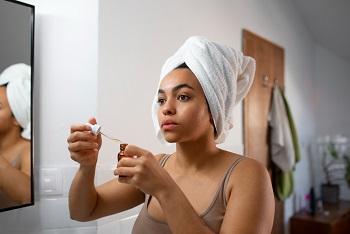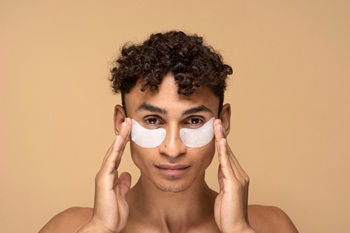Is Your Makeup SPF Enough to Protect Your Skin?
Is your daily moisturiser or foundation protecting your skin from the sun? As SPF labels appear on everything from BB creams to luxury makeup, many assume these products offer the sun protection they need. But can a thin layer of tinted moisturiser truly guard against UV damage? Growing dermatological evidence suggests it might not be enough and raises important questions about how we protect our skin daily [1].
Sunscreen is an important tool in reducing the risk of certain skin cancers. Studies have shown that regular sunscreen use significantly lowers the risk of developing squamous cell carcinoma and melanoma over time [2]. This protective effect is primarily due to the product’s ability to block ultraviolet B (UVB) radiation, as measured by its Sun Protection Factor (SPF) [3]. SPF 30, for instance, filters approximately 97% of UVB rays[4].
However, SPF does not account for ultraviolet A (UVA) rays, which penetrate deeper into the skin and contribute to photoaging and carcinogenesis [5]. For this reason, broad-spectrum sunscreens that protect against both UVA and UVB radiation are recommended to ensure adequate protection.
Cosmetic products like foundation, tinted moisturisers, and BB creams often contain SPF values ranging from 15 to 30. While these values may appear sufficient, there are critical differences in formulation. Dedicated sunscreens are engineered to ensure stable, uniform, and long-lasting UV protection [6]. In contrast, moisturisers and makeup's primary function is hydration or coverage, with sun protection added secondarily.
A major challenge is the application of these SPF products. SPF efficacy testing assumes a 2 mg/cm² application—about a quarter teaspoon for the face [7]. In reality, cosmetic products are often applied much more sparingly. For example, people typically use only a thin layer of foundation or moisturiser, significantly reducing the actual protection.
UV photography studies have shown that SPF moisturisers leave more of the face inadequately covered than traditional sunscreens [8]. Users were found to miss 11.1% more of their facial area—especially around the eyelids—when using SPF moisturisers instead of dedicated sunscreens. These regions are delicate and among the most susceptible to UV-related skin cancers.
Additionally, cosmetic SPF products are often not formulated to be photostable or water-resistant, which further reduces their effectiveness in real-world conditions [9]. Dermatologists consistently advise using a dedicated broad-spectrum sunscreen with at least SPF 30 as the final step in your skincare routine before applying makeup [10].
Reapplication is also crucial—every two hours, or more frequently during activities like swimming or sweating [11]. While SPF-containing cosmetics may offer supplementary protection, they are not a reliable substitute for standalone sunscreens.
How to Maximise Protection with these Evidence-based Recommendations
- Apply a broad-spectrum sunscreen with SPF 30 or higher every morning.
- Use a generous amount of at least 2 mg/cm² or ¼ teaspoon for the face.
- Reapply every two hours, or immediately after swimming or sweating.
- Use makeup or moisturiser with SPF as supplementary coverage, not your only protection.
- Use SPF sprays or powders for convenient reapplication over makeup.
- Pay attention to high-risk areas such as the eyelids, neck, ears, and lips.
Conclusion
In conclusion, while SPF in moisturisers and makeup provides a convenient layer of sun protection, it should not be used as the sole defence against UV exposure. Evidence consistently shows that these products are frequently under-applied, unevenly distributed, and less effective under real-world conditions. Daily use of a dedicated broad-spectrum sunscreen remains essential for optimal protection and to support long-term skin health. Cosmetic products with SPF can help, but only when used along with correct and consistent sunscreen application.
By: Dr. Bita Abdi
Edited by: Mengqi Dong and Damilola Elewa
Additional Read;









Comments (0)